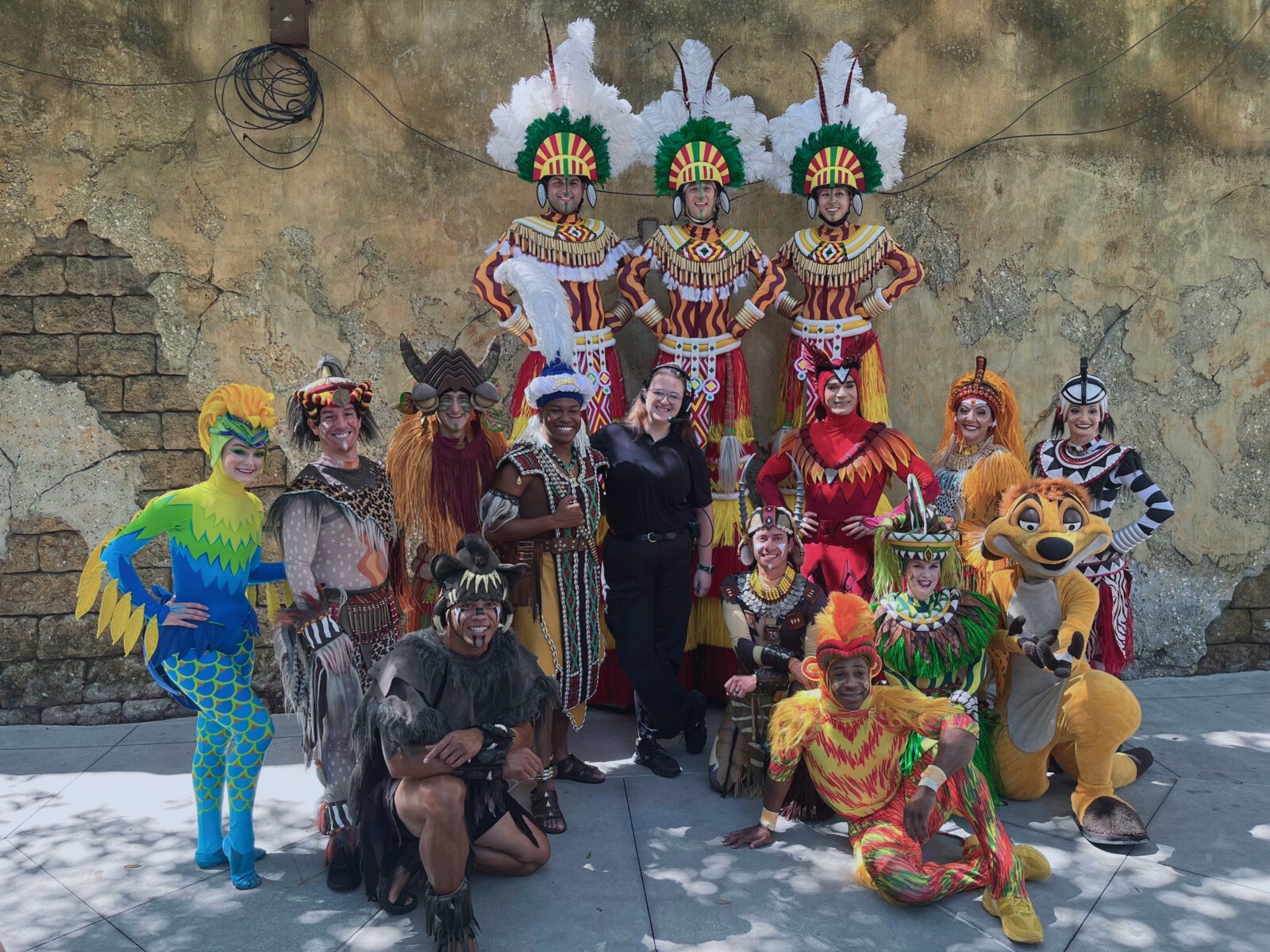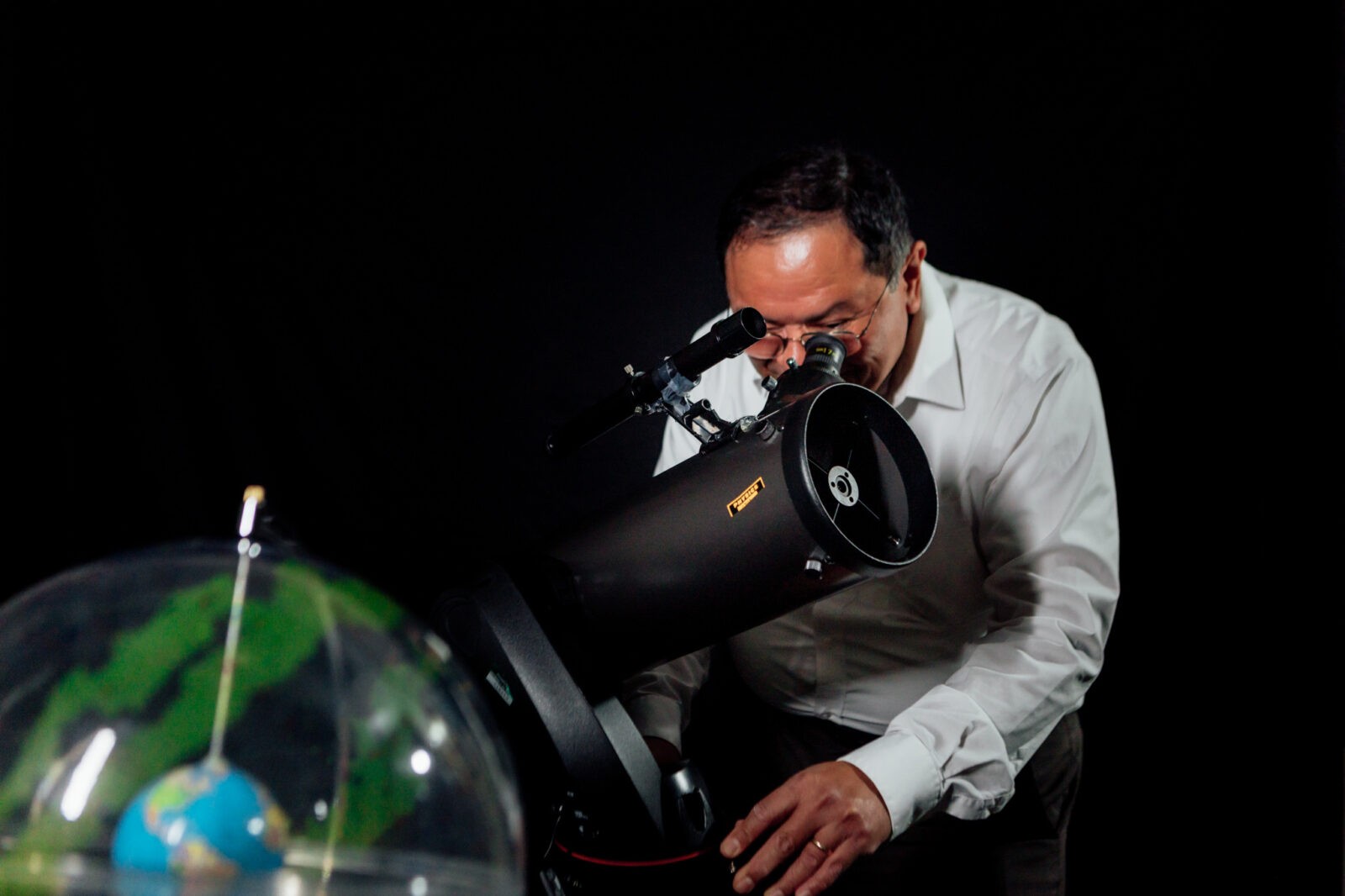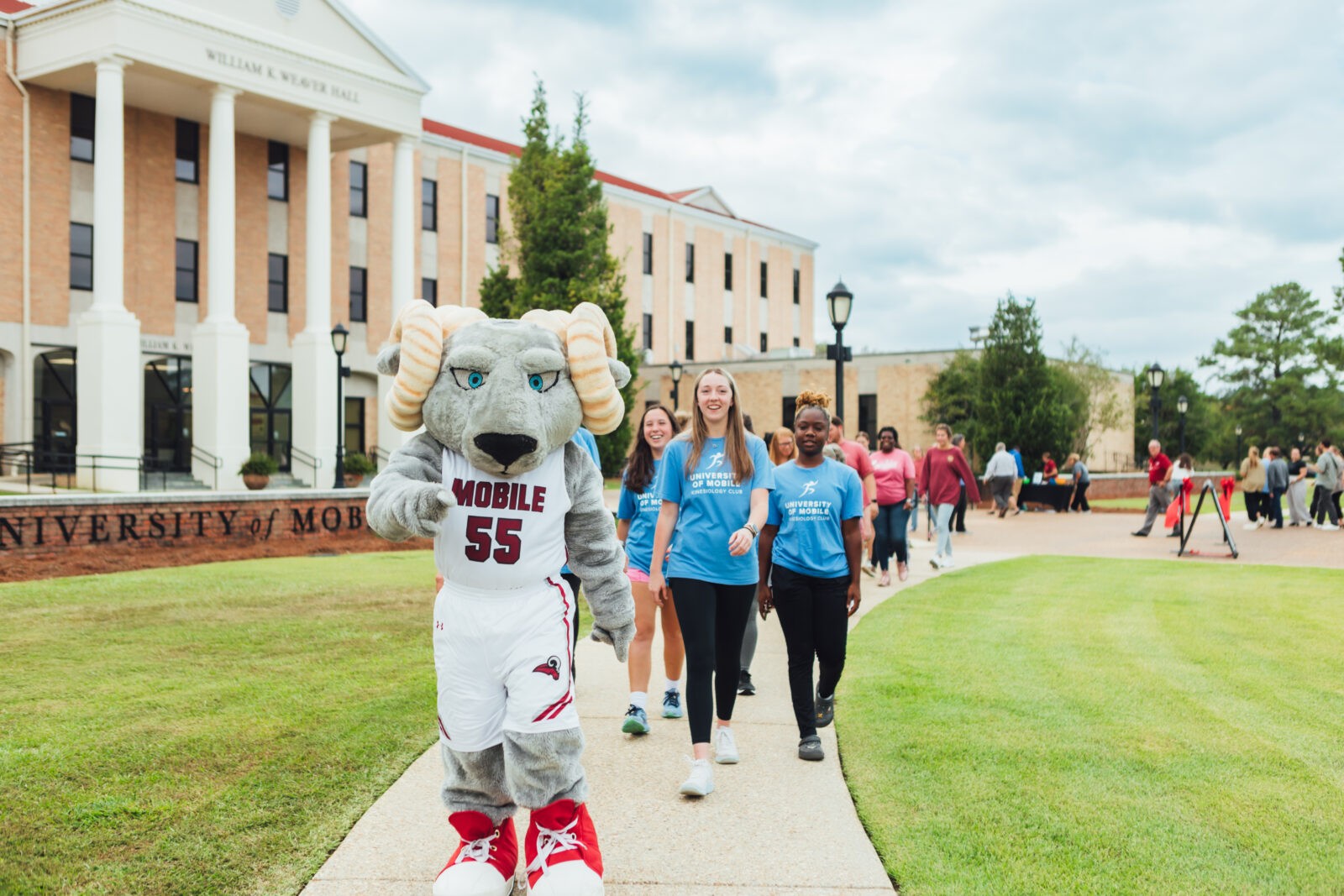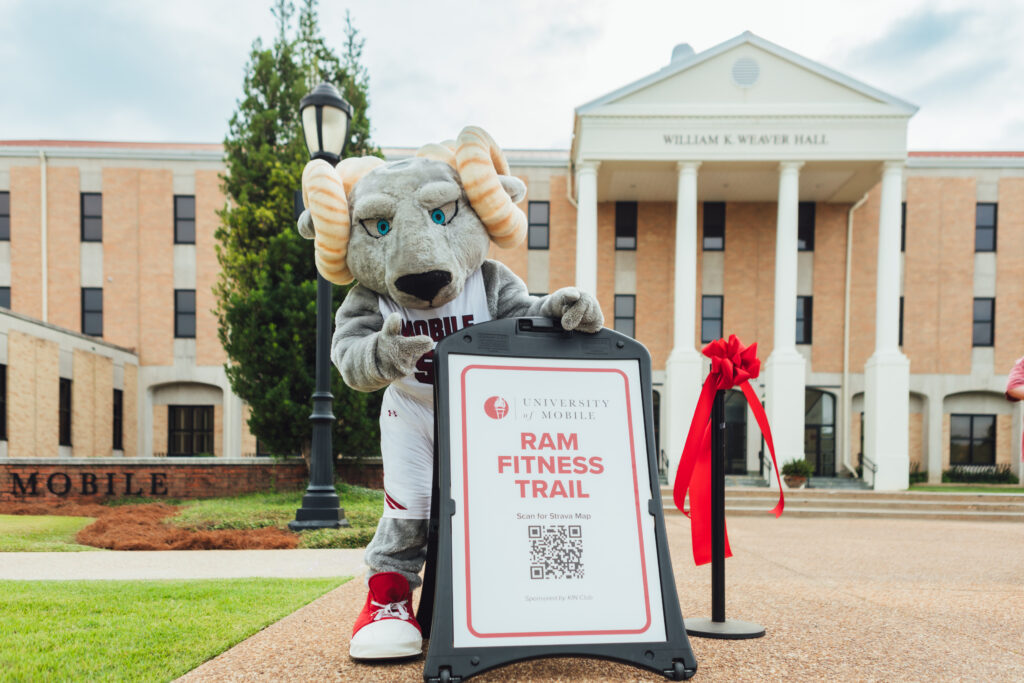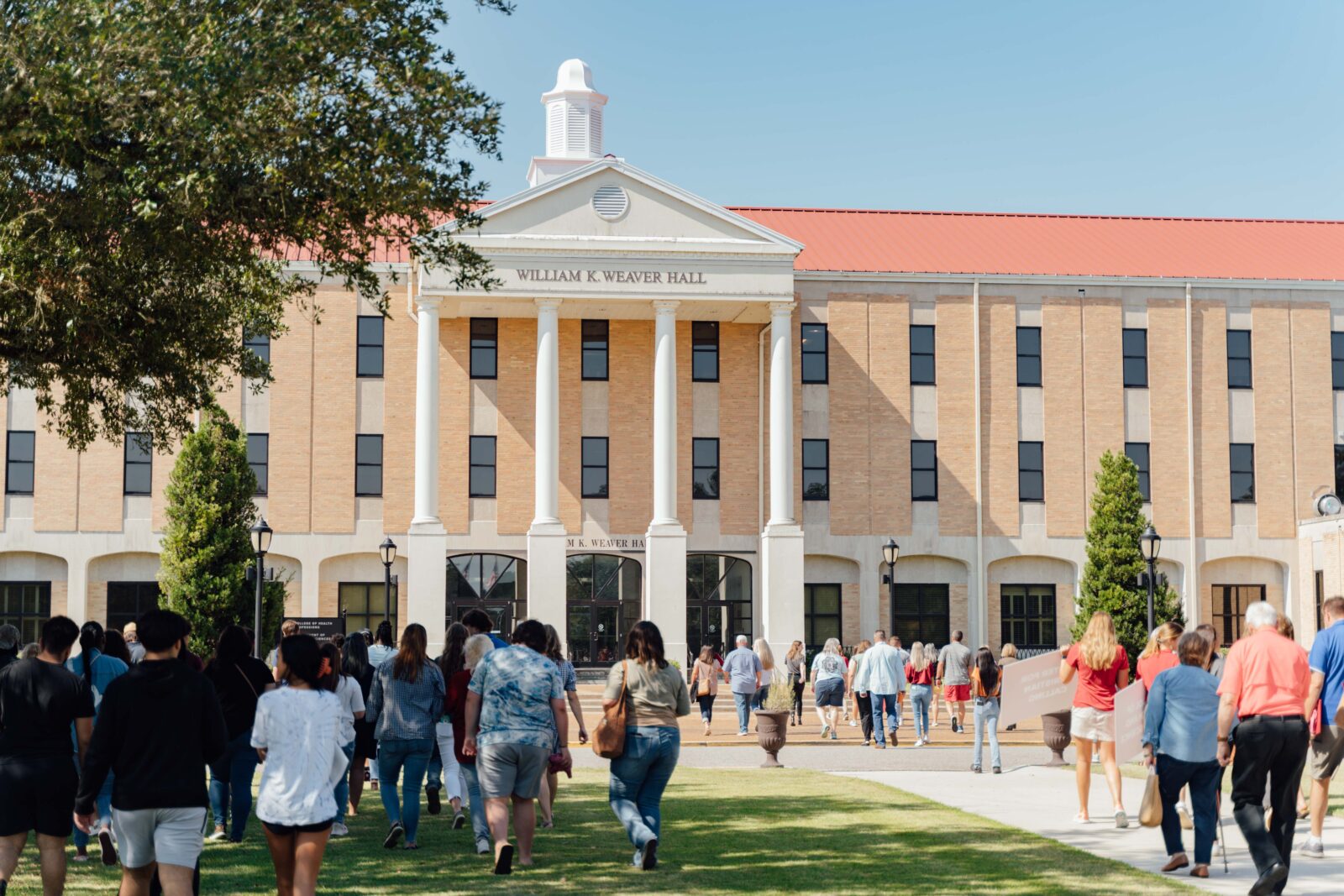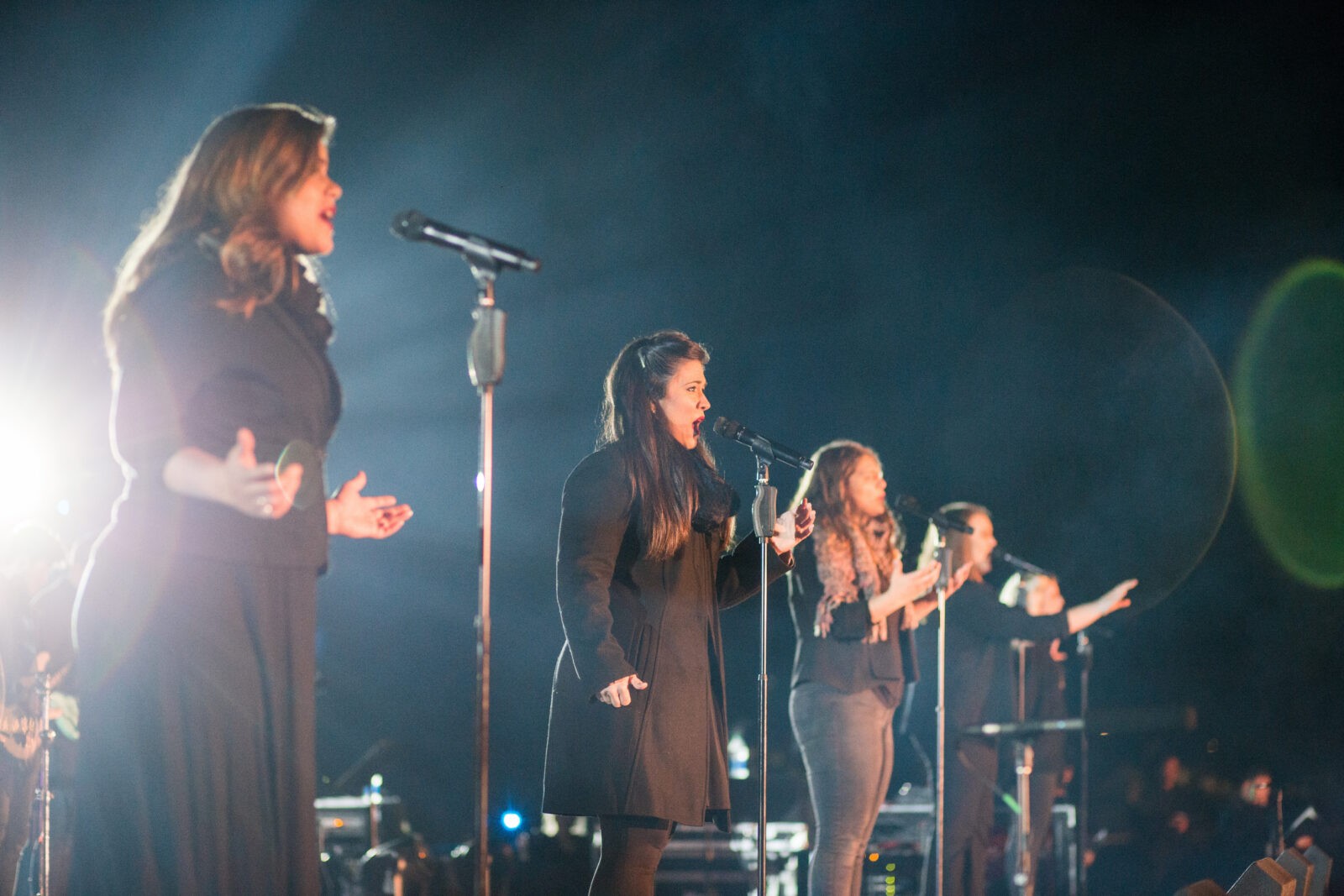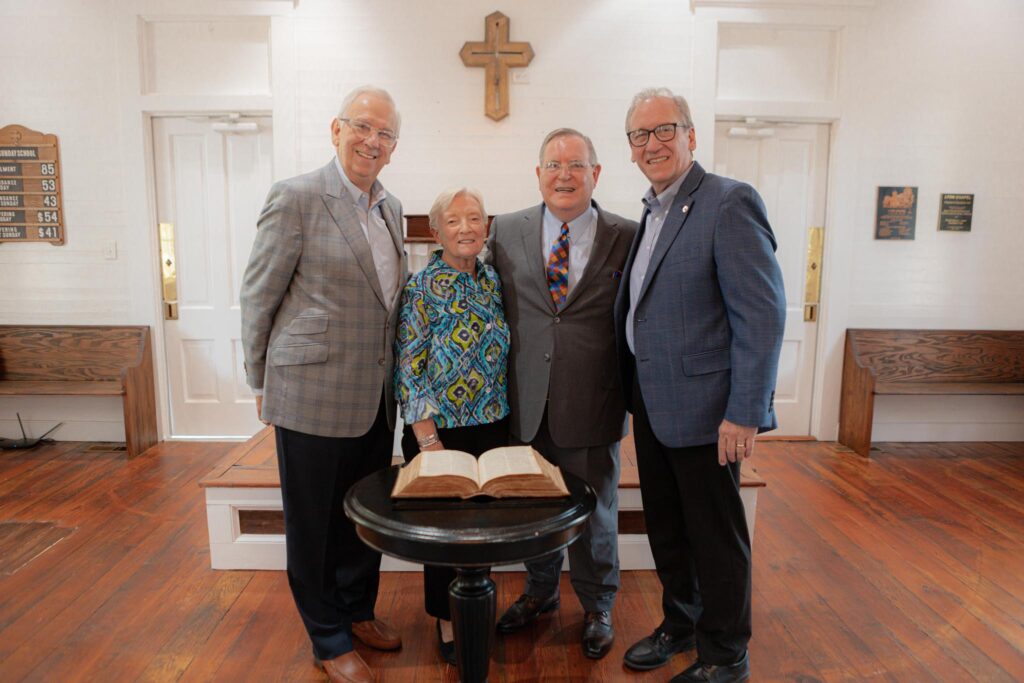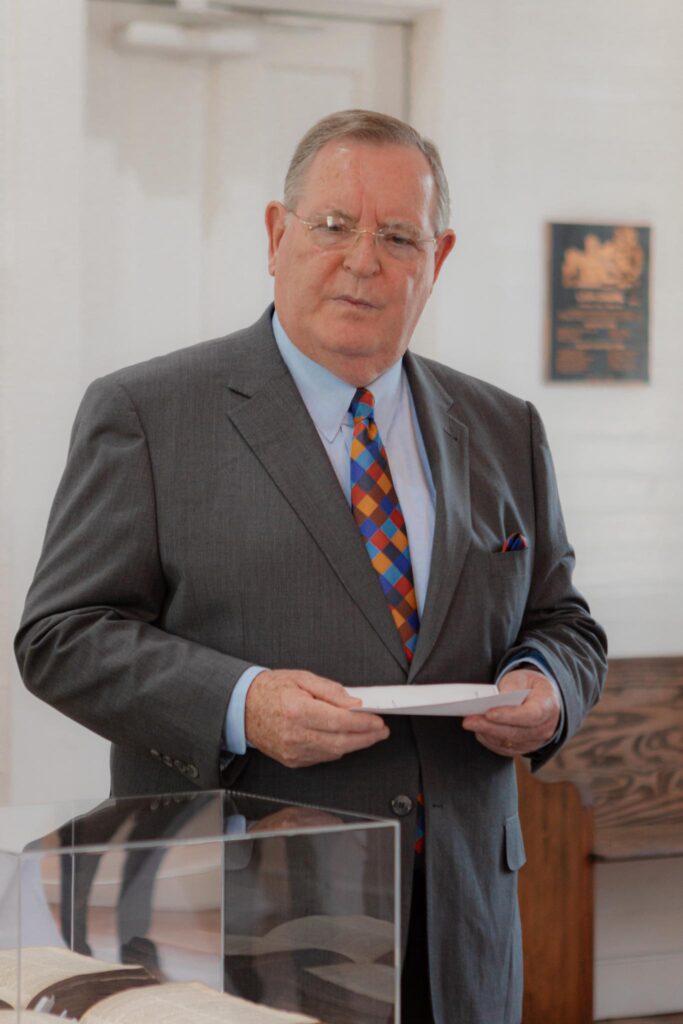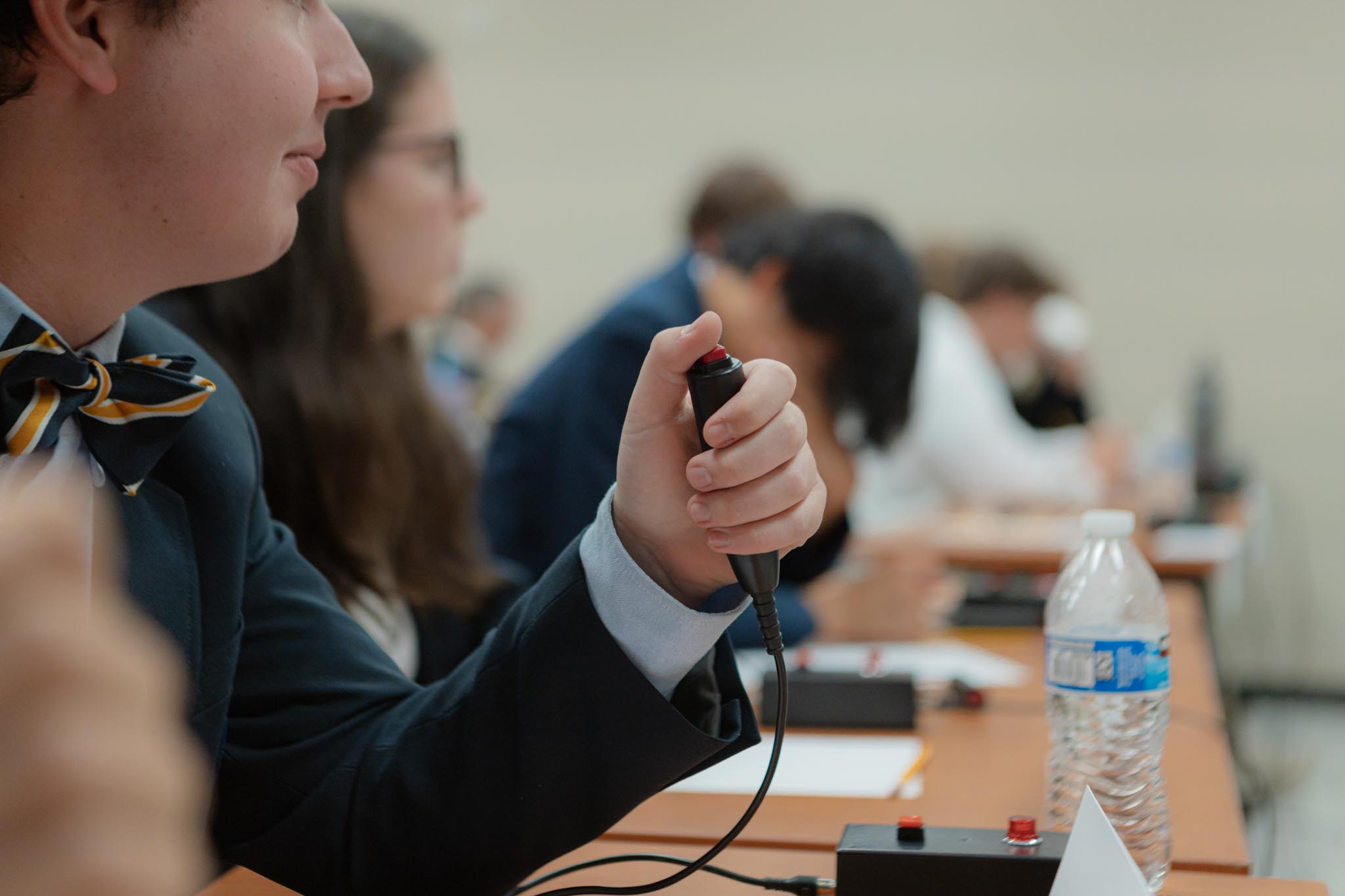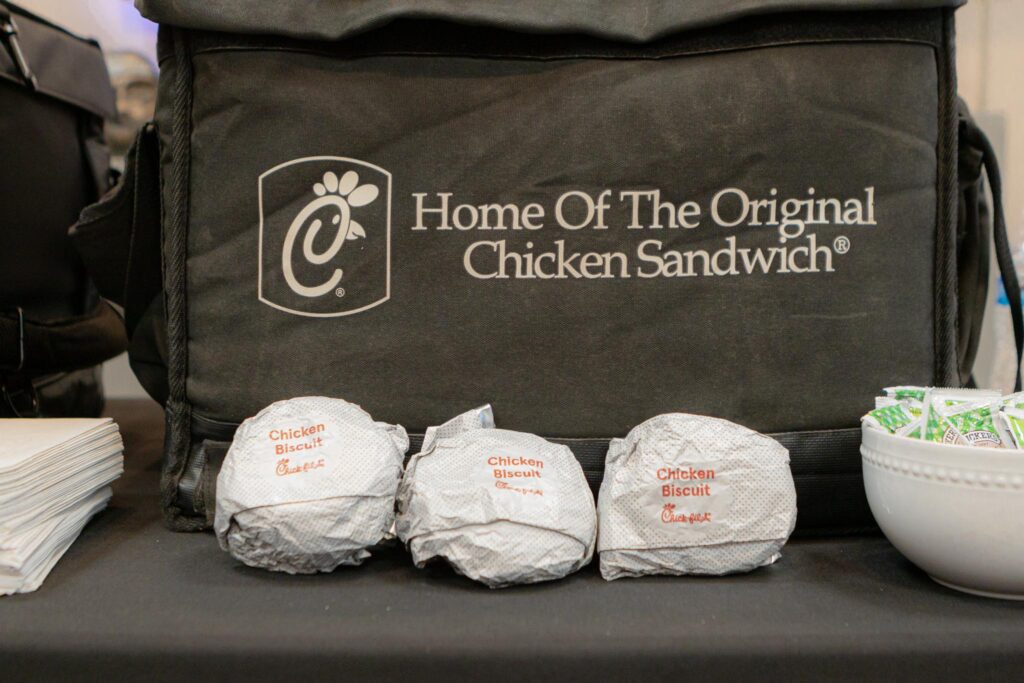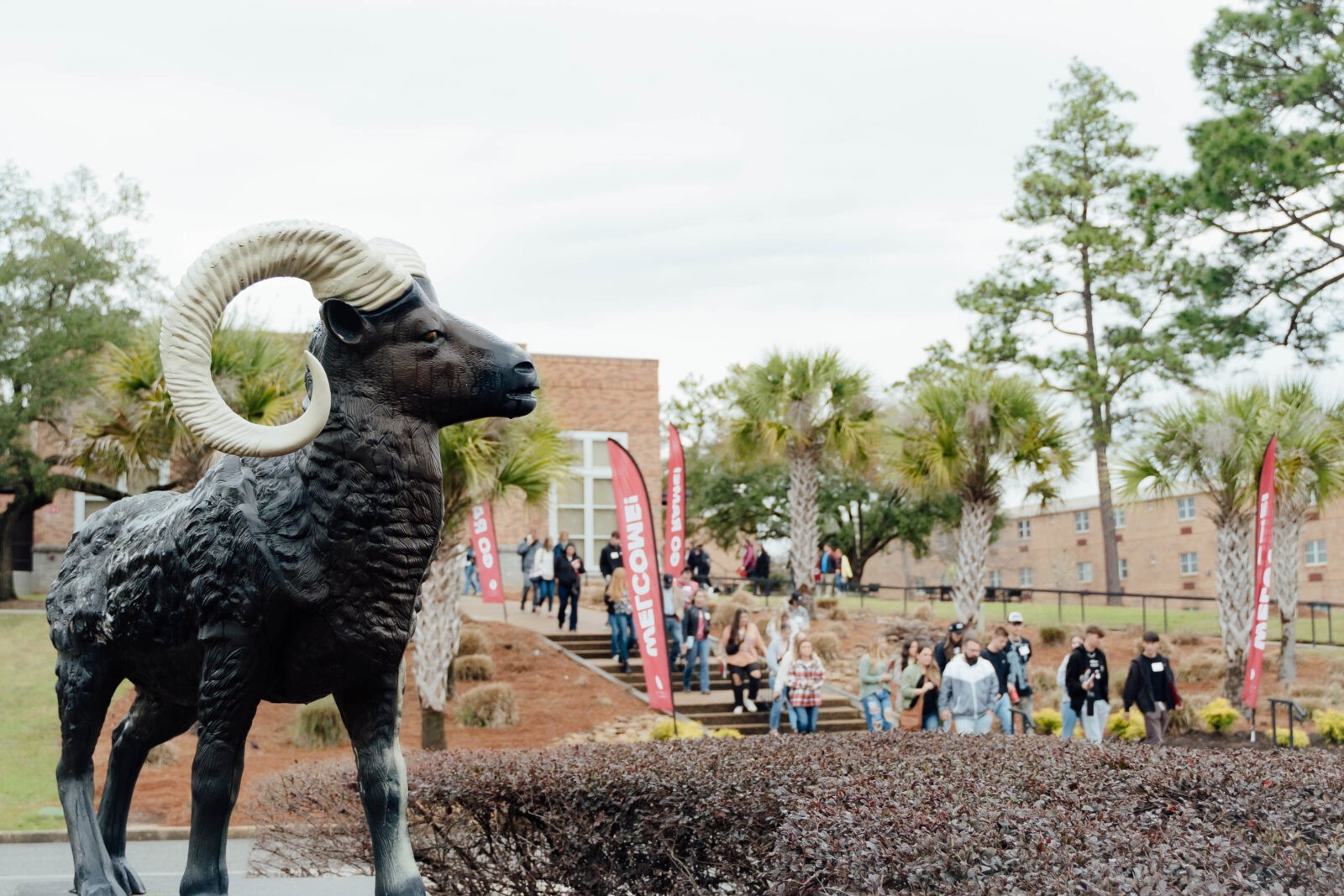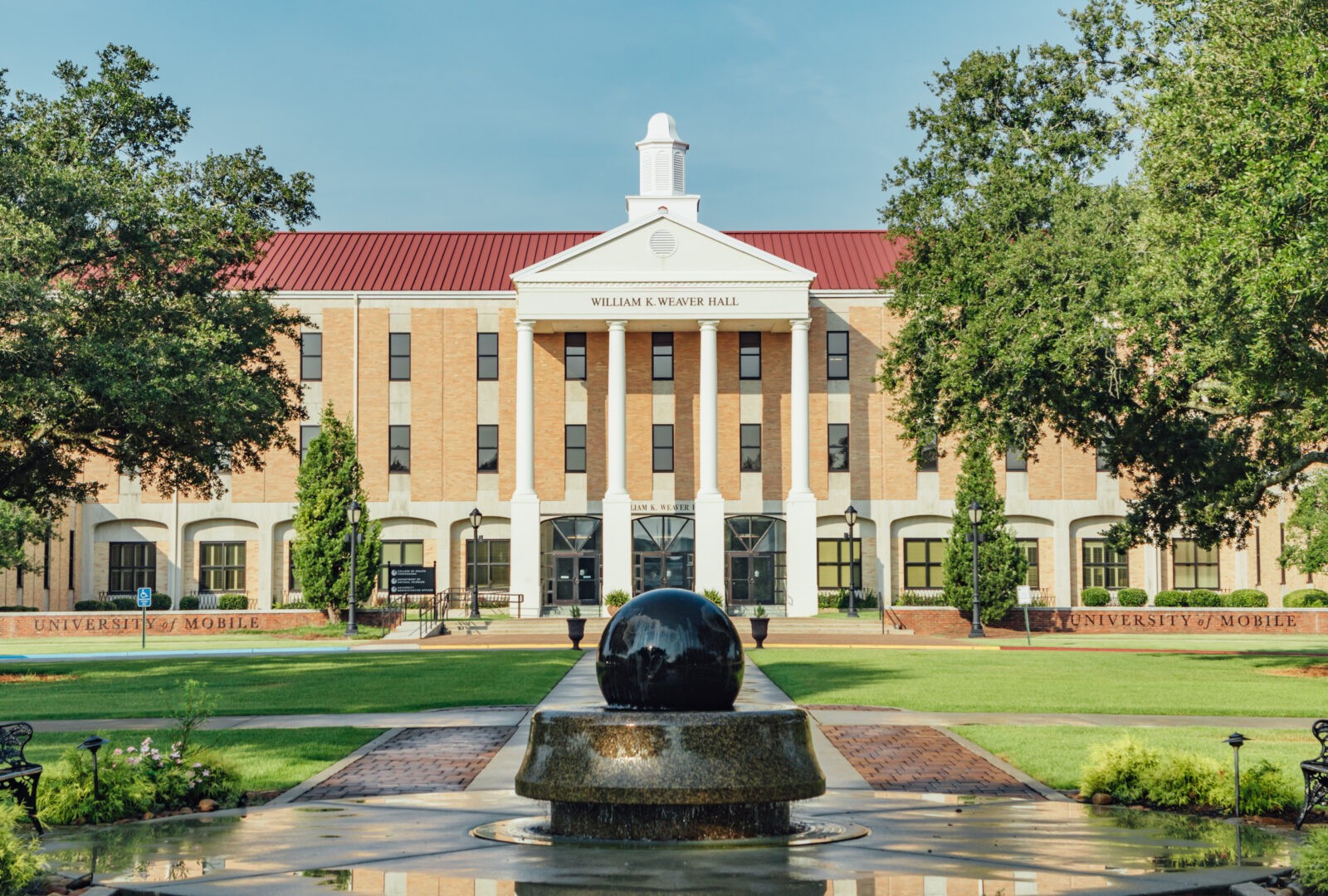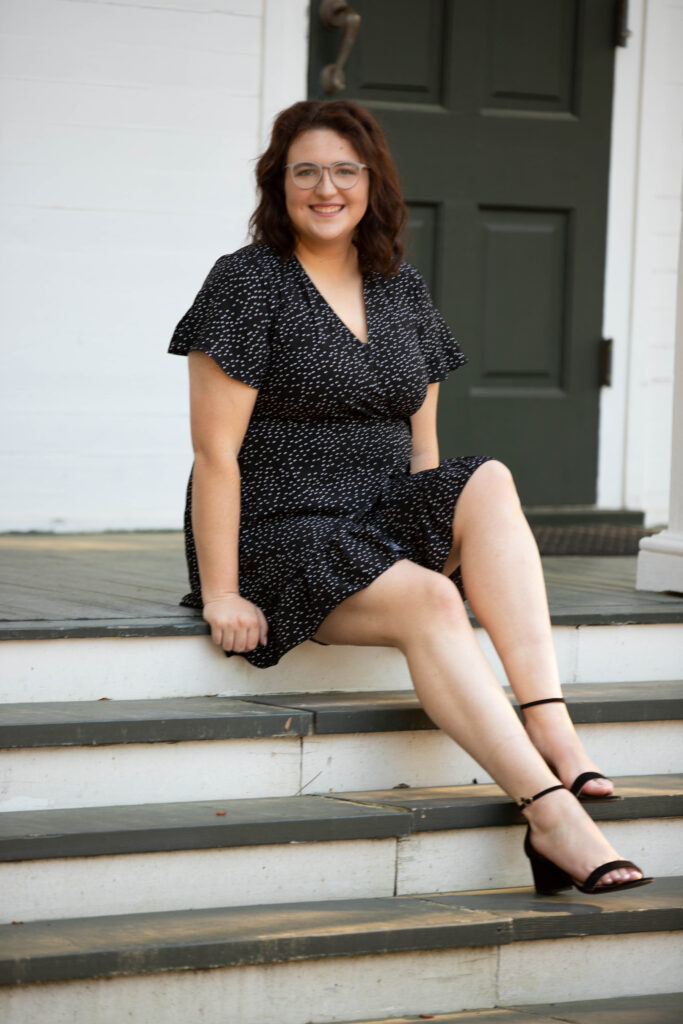
Hannah Goodman
Entertainment Technician
Walt Disney World
Bachelor of Science in Production Technologies ’23
“The hands-on experience provided to me in the Alabama School of the Arts at the University of Mobile prepared me to confidently walk into the professional environment of entertainment, knowing I have the knowledge and skill to perform my job at the highest caliber.”
– Hannah Goodman ’23
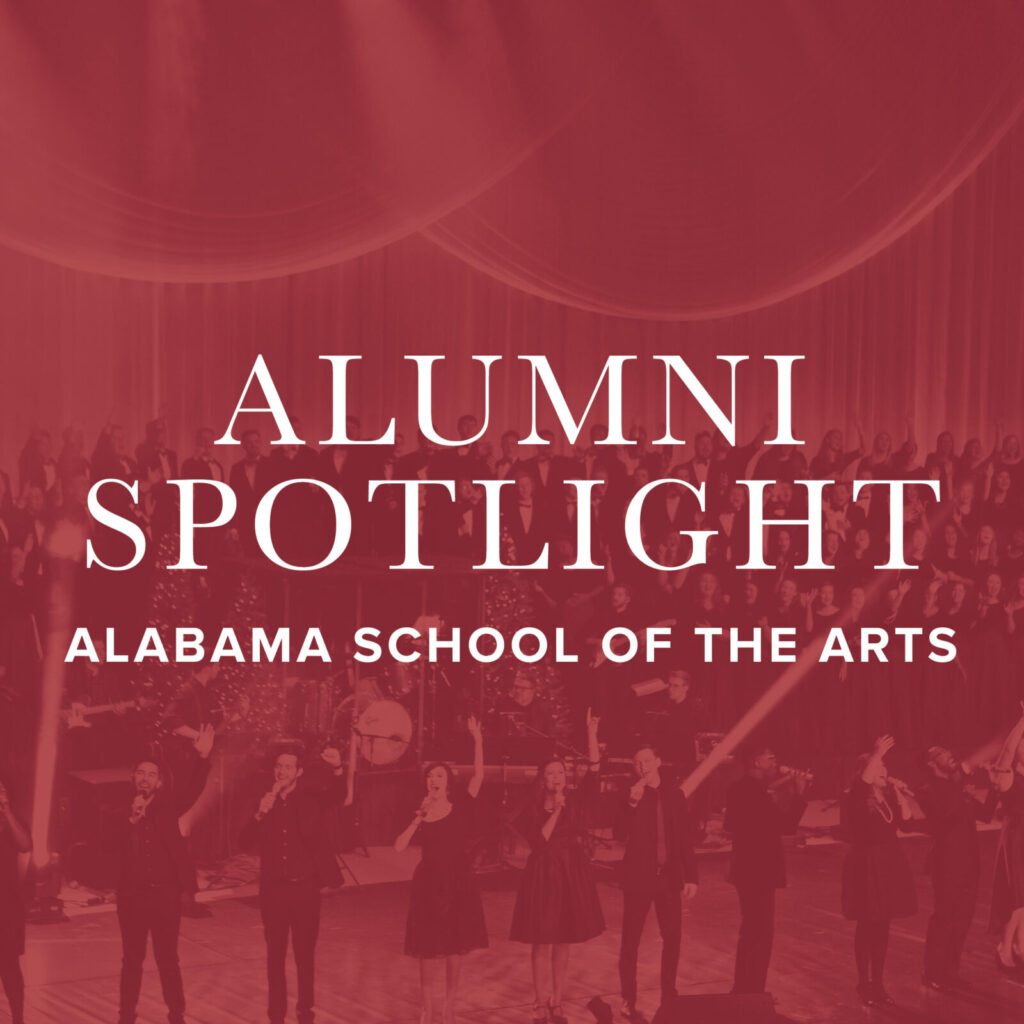
It was Spring Spectacular, the final spring semester performance for students in the Alabama School of the Arts at the University of Mobile. In a few weeks, Hannah Goodman would graduate from the Christian university with a Bachelor of Science in Production Technologies. But this night was her real graduation experience – when she put the previous four years of undergraduate study and experience to the test as Student Technical Director.
“I was able to step into a role unlike anything I had done before to manage a team of my peers to produce the final spring performance of the year,” Hannah said. “The practical experience I gained throughout my time at the University of Mobile gave me the confidence I needed to step into any position that God provided for me.”
Soon after graduation, Hannah was using her UM degree and experience to make the magic happen at “The Happiest Place on Earth” – Walt Disney World.
Q. Tell us about working as an entertainment technician at Walt Disney World. What is a typical day like?
A. As an entertainment technician, I do a little bit of everything. My day-to-day tasks vary wildly. Some days I work in the Harambe Theater as a technician for the stage show “Festival of The Lion King.” Within this role, I have been able to learn a variety of different skills to support the acts that perform at this stage. Due to the nature of the requirements of this show, I was also given the opportunity to receive pyrotechnic certification.
Other days I am the audio technician for the “Viva Gaia” street band that performs on Discovery Island at Disney’s Animal Kingdom.
I also get the opportunity to do audio and lighting for evening park events, tech installations and weddings throughout the park. I work on various stages, and I am able to train in a variety of positions throughout Walt Disney World.
Q. How did your time in the Alabama School of the Arts prepare you for this?
A. My time at the University of Mobile prepared me for my career in so many more ways than I realized. The hands-on experiences provided to me prepared me to confidently walk into the professional environment of entertainment, knowing I have the knowledge and skill to perform my job at the highest caliber.
Q. What kind of experiences did your production technologies degree program provide that prepared you for the professional world?
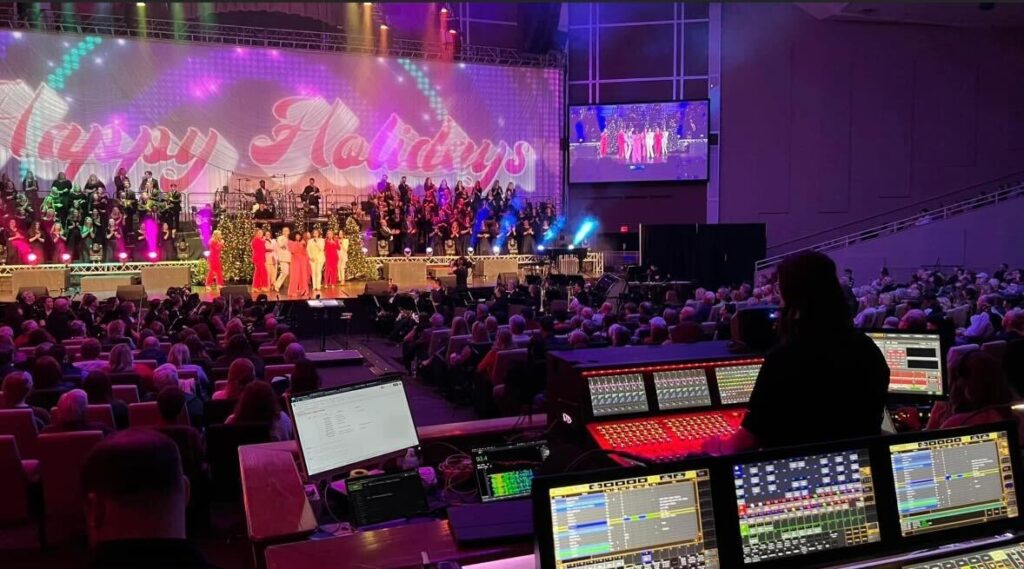
A. During my final year at UM, I was given the privilege to work alongside the technical director and FOH engineer, Jeremy Harford, at Christmas Spectacular. In the months leading up to Christmas Spec, I was given the opportunity to work with the ASOTA lead team to learn about everything that goes into this performance. During my final semester at UM, I was able to use all of the skills I acquired in my four years of undergrad to gain the title of Student Technical Director for Spring Spectacular.
Q. Our motto at UM is “Experience the Difference.” What would you say is the UM difference?
A. The University of Mobile gave me such a strong community of people, both staff and students, that I consider family. With small class sizes, I was able to gain valuable mentorship from staff members both in and out of the classroom.
One of these mentors is the Director of Production Technology, Jeremy Harford. During my time as a production technologies student, Jeremy went out of his way to make sure students understood concepts, even outside of the classroom. I was able to work alongside Jeremy outside of UM at South Coast Church, where he continued to mentor and help sharpen my skills, as an audio engineer, lighting designer and a leader. There were many times in my four years when Jeremy stepped up not only for me, but for my classmates, to help us problem solve and give us practical advice about our next steps in our career. If it were not for the constant support and practical advice, I would not be as confident as I am in my technical field. The ASOTA community is unlike any other and was one of the greatest parts of my time at the University of Mobile.
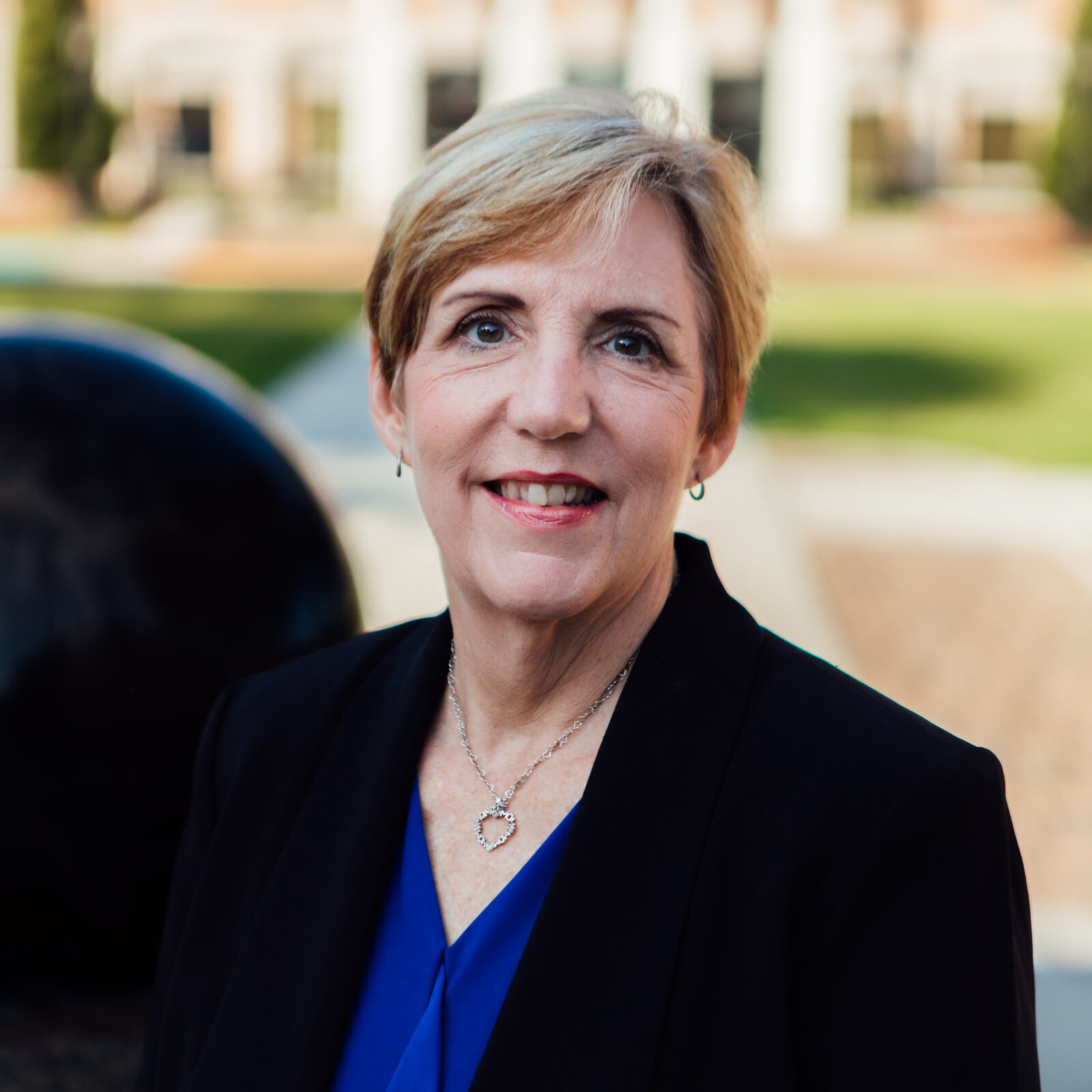
Kathy Dean uses her passion for storytelling and “playing with words” to share the stories of people, place and purpose that make the University of Mobile unique. As associate vice president for university communications, she manages media relations, edits the TorchLight alumni magazine, and oversees university communications. A former award-winning journalist, she is a two-time recipient of the Baptist Communicators Association grand prize for feature writing. Kathy and her husband, Chuck, live with three extremely loud miniature schnauzers.
